Discover RA Exchange
RA Exchange

1027 Episodes
Reverse
The New York-based journalist talks about her breakout book, Mood Machine, live from Soft Centre Festival in Sydney.
As we approach the end of 2025, it's clear that one of the year's most zeitgeist-defining books has been Liz Pelly's Mood Machine: The Rise of Spotify and the Costs of the Perfect Playlist. The New York-based writer has been on a promotional tour, speaking at festivals around the world, and one of her recent stops was at Soft Centre in Sydney, where this Exchange was recorded live with writer, editor and DJ Audrey Pfister.
Pelly's background is in the DIY scene, college radio and independent alt weeklies, all of which ignited her interest in writing about music. Over the last few years, she has become an outspoken advocate for underground music, and an incisive critic of how the streaming economy has debilitated independent artistry. In this conversation, she unpacks some of her book's main conceits. Spotify, for example, was originally designed around advertising models rather than music-first models, which is why it rewards music that performs well at scale. She explains how that's created so much growing inequity in what performs well on the platform, and she also draws fascinating parallels between the streaming economy and digital media.
Mood Machine ends on a somewhat hopeful note, and Pelly proposes some solutions: as custodians of the independent music scene, we have a responsibility to go to live shows, subscribe to emerging DIY media projects and give money directly to artists by buying their music and merch. Listen to the episode in full. -Chloe Lula
The TikTok tour de force talks about '90s electronica, UK garage and her 2025 mixtape, Fancy Some More?
There's a new generation of artists who've come up almost entirely online, and perhaps the breakthrough star of the TikTok music era is PinkPantheress. A few years ago, the British 24-year-old quietly strategised how to game the social media algorithm and get her songs to go viral. She succeeded—and became a headliner practically overnight. She's openly talked about how she got there, including writing songs in short formats and using confessional, diaristic lyrics to capture the hearts of her growing audience.
Today, PinkPantheress is promoting her 2025 mixtape, Fancy Some More?, which heavily references the UK club sounds of the '90s and early '00s, blended seamlessly with contemporary electronica and pop. In this interview with RA's Joelle Robinson, she dives into the making of this release, and candidly reflects on navigating her newfound fame and overcoming the challenges, both personal and professional, that have accompanied a high-intensity touring life. She also reveals her aspirations for the future—which include big plans to reach yet another level of success—and her dreams for the broader electronic music landscape, too. Listen to the episode in full. -Chloe Lula
There are few names as widely loved in clubland as Bristol-based producer Omar McCutcheon, AKA Batu.
His label Timedance, currently celebrating its ten-year anniversary, has been instrumental in shaping a certain corner of contemporary electronic music. It champions a mutant, rhythmic, UK-flavoured sound that escapes any obvious genre touchstones, as well as spotlighting the careers of artists like Verraco, Ploy and Hodge who push musical and cultural boundaries.
In this Exchange, McCutcheon sat down with Resident Advisor's editor, Gabriel Szatan, in London to reflect on the label's Afrofuturist philosophy, its journey over the past decade and the sense of purpose and direction that have developed over time. He spoke about the impact that scenes beyond the UK—such as China, South Africa, Brazil and Mexico—have had on his productions and label curation, and how they offer fresh perspectives that contrast with Europe's sometimes overly nostalgic take on dance music. He also discussed finding positivity in a dark time, and music's enduring potential to inspire and connect.
The DJ talks about Israel’s genocide in Gaza and how the music industry, and some of her peers, have failed Palestine.
The most deeply divisive topic of the year is undoubtedly Israel's genocide in Gaza. The issue has prompted some artists to step boldly into the political ring and others to shield their professional identities from scrutiny and public discourse—with each camp drawing fierce backlash.
After a brief summer hiatus, the RA Exchange returns with a new season, launching with Palestinian DJ Sama’ Abdulhadi, who addresses all this and more in a charged interview. The Ramallah-born artist has since gone on to tour non-stop internationally, regularly appearing alongside some of her idols growing up, such as Richie Hawtin and Nicole Moudaber. She's also no stranger to RA: in 2023, she graced the cover of this magazine and, just this summer, contributed to our drop of RA.1000 anniversary mixes.
This interview, though, is the most outspoken Abdulhadi has ever been. She shares her take on what's happened since October 7th, including her assessment of how and where the music industry, and her peers, have fallen short; the pressure she feels to be a global spokesperson for Palestine; why she feels that the revolutionary spirit has drained from a subculture built from resistance; and how, despite it all, she retains a sense of optimism and forward momentum. Listen or watch the episode in full. -Chloe Lula
"We're trying to show more of who we are." The Belgian brothers unpack their decades-long career and first album in more than seven years.
There are some songs that have become pervasive, nearly universally recognisable features of pop culture. And my guess is that even if you don't know the Belgian duo Soulwax (AKA 2Manydjs) by name, you'll know their biggest hits, like early 2000s indie electronic anthems "E Talking" or "NY Excuse."
In this interview with Resident Advisor editor Gabriel Szatan, the brothers David and Stephen Dewaele talk about their decades-long career and writing their first album in more than seven years, All Systems Are Lying, which they road tested for ages before deciding to put it out. They also unpack bigger thematic arcs in their work and lives: the abiding influence of New Order's Power, Corruption and Lies LP; their creative philosophy ("If it sounds too simple, leave it alone);" and the nature of musical trends and revivals, which have fluctuated intensely since they began performing and releasing records. Listen to the episode in full. -Chloe Lula
"Designing clubs is about understanding psychology." The famed architects talk about bringing emotions, durability and hidden logic into era-defining nightlife spaces.
How do you design the world's best clubs? Studio Karhard, the architecture firm started by Thomas Karsten and his wife, Alexandra Erhard, in 2003, know exactly which ingredients go into a successful nightlife space. The Berlin-based duo are the visionaries behind Berghain and ∄ in Kyiv, as well as a number of private residences, businesses and smaller venues around the world. Their specialty, they say, is salvaging forgotten spaces and resurrecting them to serve a new purpose.
In this RA Exchange, Karsten talks about first coming across the building that's now Berghain and working tirelessly with engineers and city planners to preserve its neoclassical facade. As he explains, creating a memorable atmosphere goes beyond just designing for aesthetics. There are countless hidden design features that serve to make venues like Berghain comfortable.
But according to Karsten, Studio Karhard's masterpiece is ∄, which they began designing in 2018. He describes the special experience of first visiting the abandoned brewery—which was then in extreme disrepair—and bringing the lessons they took away from building Berghain to make this Ukrainian space their most successful project yet.
This episode takes a look under the hood of the psychology, anthropology and emotional study that inform the venues that have shaped underground electronic music culture. Listen to it in full. -Chloe Lula
"There are no new feelings, just new words." The Irish DJ talks about finding commonality in polarising times, CSD weekend and his podcast, Queerly Beloved.
In Berlin, the end of July means one thing: CSD, AKA Christopher Street Day. Commemorating New York's historic Stonewall Riots of 1969, this raucous weekender is a yearly celebration of the queer community and LGBTQIA+ rights.
The Irish DJ and podcast host Cormac is committed to documenting queer history. As host of Queerly Beloved, he conducts candid interviews with queer DJs and producers about the music industry, sexuality and mental health. But in this week's RA Exchange, Cormac is the one on the couch.
He speaks about growing up gay in a conservative Irish town and navigating homophobic environments as a young person. He found solace in the dance music scene—which he said saved him—but he also found drugs and alcohol, which he used to manage his battle with depression and shame. Many years of substance abuse forced him to go sober and to prioritise his mental health. Cormac said he worried that quitting partying would end his sex life and music career. Instead, it was just the beginning.
Over the course of more than two decades, Cormac has accumulated a loving legion of fans as a DJ, known for playing disco, 80s high NRG and flamboyant tunes that he describes as "poppers music." His label Polari—a reference to the secret language used by queer people throughout history—will release his new single, "Gone," on July 25th, with remixes from Ewan Pearson and Fred Terror. It's also raising funds for Berlin and London-based trans charities Casa Kua and Not A Phase. Listen to the episode in full. -Chloe Lula
“The hardware world is like a sport.” The DJ and producer talks about mastering synthesis and finding community in a male-dominated music ecosystem.
Is talent innate? Today's guest, producer and modular synth extraordinaire Sibel Koçer (AKA JakoJako) doesn't think so. She's seen an extraordinary rise in her career in the last few years, earning a residency at Berghain, releasing on Mute Records, playing live shows at festivals around the world and becoming an in-demand remixer and collaborator for artists from the worlds of classical music, techno and pop. But she doesn't think she got where she is because of some God-given gift; instead, she says, her success is the result of tireless hard work.
Many years ago, when Koçer moved to Berlin to finish nursing school, she spent slow periods in her job poring over modular synth manuals. She eventually abandoned nursing and instead chose to pursue an internship at the popular Berlin synth shop SchneidersLaden, where she started learning the ins and outs of building her own system and making her first connections in the modular synth world. In this Exchange, she talks about the specific dynamics of the producer community that loves and uses hardware—which she describes as competitive and "sports-like"—as well as being a woman in this environment, finding creative inspiration from synth manuals and channeling her energy into mastering synthesis when she felt she had no other choice.
Koçer is curating a compilation called Hardwired for the label Air Texture, which will be out on July 11th. It showcases music from the community of hardware enthusiasts and people who have an appreciation for machine-based music, including Rodhad, The Field, Acid Pauli and more. Listen to the episode in full.
"These spaces are sacred." The Brooklyn trio reflect on 12 years of throwing parties that celebrate New York's queer community of colour.
New York nightlife has a truly unique ecosystem. And for the last 12 years, the art collective Papi Juice has been right at the center of it, hosting parties, workshops, artist residencies, performances and exhibitions that affirm and celebrate the lives of queer and trans people of colour.
In this RA Exchange recorded during Pride Weekend in Brooklyn, reviews editor Kiana Mickles sits down with the Papi Juice trio—Mohammed, Adam and Oscar—to talk about intersectionality and how they've maintained their principles and political integrity by continuing to put their community first. The DJs and multimedia artists have been active in leading fundraisers for Black trans organisations and archiving queer nightlife in Brooklyn. They recently
received an award from the City Council of New York for their contributions to culture and have partnered with institutions like The Brooklyn Museum, MoMA PS1, El Museo del Barrio, Creative Time, The Metropolitan Museum of Art and the Leslie-Lohman Museum of Gay and Lesbian Art.
In this interview, Mohammed, Adam and Oscar reflect on meeting for the first time, navigating New York's cabaret laws, creating a distinct visual identity, learning to work through internal conflict and differences in taste, and working towards a shared vision across many years. Listen to the episode in full. -Chloe Lula
"There's a lack of continuity for FLINTA* individuals." The Chilean artist talks about trans rights and the launch of her new sex party, ABOV.
What would genuine visibility, safety and solidarity look like for the trans community? This week's interview with Chilean artist Dominga Huidobro (AKA Föllakzoid) explores this topic in depth. Huidobro began her transition eight years ago. By then, Föllakzoid had already put out a number of releases on Sacred Bones. She's since gone on to totally reinvent the psych rock genre, working with hypnotic loops and percussion, and even crossing over into the world of techno with collaborations and remixes from Atom TM and DJ Nobu.
Huidobro opens up about how transitioning changed her artistic identity, and even fed directly into her standout album, V. But it also began to pose problems in her personal life. She was attacked at a queer party in Berlin last September, an incident that reflected an ongoing lack of safety and care for the trans community. Touring as a solo artist, she is still rarely provided safe, pre-arranged transportation to and from venues, and the constant trauma of crossing borders and being left to fend for herself in threatening situations led her to pause her live shows for the rest of this year.
In the meantime, Huidobro has started a FLINTA* party, ABOV, with her partner Ariana Paoletti (AKA Volvox). The two end the conversation with a meditation on what the FLINTA* mission means in 2025. Listen to the episode in full. -Chloe Lula
"I want more risks." The French DJ and producer talks about groundbreaking musical practices, musique concrète and her forthcoming album, Juggling Dualities.
There's a history of groundbreaking musical practice that's lost in modern dance music, at least according to Hermione Frank, AKA rRoxymore. The French DJ and producer has been questioning the dominant modes of creativity for a long time. First, she learned from the world of free jazz and Afrofuturism as a child—her dad was close friends with pioneering spiritual jazz musician Sun Ra. She then went on to study musique concrète, the avant-garde school of sound collage pioneered by Pierre Schaeffer.
Today, Frank makes music that's geared more towards the dance floor, and in this RA Exchange, she uncovers how she brings her background pushing musical boundaries into more "listenable" contexts. She also dives into working with the now-defunct collective Room 4 Resistance—an intersectional feminist party for Berlin's FLINTA community which also hosted workshops dedicated to fostering systems of care—and why she's moved on from Berlin, a city that she once viewed as a hub for creativity, accessibility and as the nucleus of political, risk-taking art.
Frank has a new album, Juggling Dualities, out July 17th on !K7. It sits at the fringes of New Age and dub, taking a sideways look at wellness culture by meditating on the importance of self-care while simultaneously poking fun at it. Pre-order a copy here and listen to the episode in full. -Chloe Lula
"I'm ready to bring back gatekeeping." The New Yorker staff writer discusses how to protect the underground, experimenting with drugs and her new book, Health and Safety.
Can drugs help us find meaning in music and nightlife? This is a question that today's Exchange guest, New Yorker staff writer Emily Witt, asks in earnest in her new book Health and Safety: A Breakdown. Just released in hardcover in the UK and Europe, the memoir traces Witt's life in her early-to-mid 30s. A journalist living and working in Brooklyn, she began experimenting with psychedelics and club drugs after years of living what she describes as a conservative, straight-and-narrow, middle-class life. She became enamoured with the borough's underground raves, frequenting events like the festival Sustain-Release, the party Unter and sets at Bushwick haunt Bossa Nova Civic Club, all while falling in love with an aspiring DJ and producer she calls Andrew.
As the book progresses, Witt documents the growing MAGA movement in America, gun rights rallies and mass shootings. As the country falls apart, she watches her romantic relationship fall apart, too. Drugs and Brooklyn nightlife, she writes, became both an escape and a way to rearrange a world that she starts to feel no longer makes sense.
Witt shares critical opinions about the underground scene's capacity to be a utopia and place of belonging in an increasingly hostile world, arguing that there should be more gatekeeping in place to protect a scene that's threatened by capitalism and the mainstream. She also interrogates what she calls "woke identity politics" in Brooklyn, the lack of change that came from the Black Lives Matter movement, empty calls for political protest that dominated the early days of the pandemic and why, despite everything, she's chosen to stay in Brooklyn for good. Listen to the episode in full. -Chloe Lula
"Is the infrastructure working?" The Canadian DJ and producer talks playing Coachella 2025 and the music industry's unequal power dynamics.
Is the electronic music industry pay-to-play? This week's RA Exchange with Jamaican-Canadian DJ and producer BAMBII tackles this question, exploring whether innate talent is really enough to become an artist, or if success favours those with privileged socioeconomic backgrounds.
BAMBII, a queer club innovator whose exhilarating, rave-ready records exist at the crossroads of jungle, dancehall, drum & bass and UK garage, lives in Toronto. She made waves earlier this year when she posted a viral Instagram story about her set at US festival Coachella, where she said she was forced to play with malfunctioning sound and DJ equipment. As she explains to today's host, British journalist Tara Joshi, the debacle spoke to a broader issue about an economy built on exploitation. BAMBII played the festival for free, paying her way to the gig in exchange for exposure.
The music industry, she argues, thrives on unequal power dynamics: her experience was one of countless examples of how many artists are taught to be grateful for anything, and to be silent if they feel otherwise. "The music industry shows us how the world operates when there are no rules," she claims. "There is an assault on ethics and care in this industry. People love to recreate capitalism in the highest form."
In the interview, BAMBII also speaks about her forthcoming EP—Infinity Club II, out June 20th—as well as the North American club scene and the local grassroots collectives that she believes are keeping underground nightlife alive. Listen to the episode in full. -Chloe Lula
"I'm an individualist." The Throbbing Gristle co-founder on extreme experimentation, difficult women and her new album, 2t2.
As long as underground culture has existed, there have been pockets of resistance—people at the fringes who challenge societal expectations and create work that pushes against societal norms. Cosey Fanni Tutti is one of them. She's a founding member of the defunct British band Throbbing Gristle, a visual artist, pornographic model, solo musician and writer.
Tutti, now 73, grew up in the English city of Hull, where she met like-minded performer Genesis P-Orridge. Together, they formed Throbbing Gristle and the collective COUM. Their activations and installations were, unequivocally, shocking. In one show, Tutti urinated on the audience as she swung naked across the stage. In another, the band performed alongside framed displays of her used menstrual pads.
Throbbing Gristle's extreme experimentations flirted with the erotic and the grotesque, pushing the limits of sound and frequency. Their outsider approach to making music—and their erasure of the boundary that separates life and art—went on to influence a generation of creatives across genres, especially in early techno.
After Throbbing Gristle disbanded, Tutti performed as synth pop duo Chris & Cosey with her husband and ex-band member, Chris Carter. Her work as a solo artist has blossomed in recent years. She published her memoir, Art Sex Music, in 2017. After turning 66, she also wrote two full-length albums and wrote another book, Re:Sisters, which explores the life and legacy of the late composer Delia Derbyshire who faced adversity as a woman in a male-dominated world, like Tutti herself.
In this Exchange with with Chloe Lula, Tutti discusses her dedication to living alternatively, expressing herself by any means possible and her forthcoming album, 2t2, composed during a time of extreme difficulty in her personal life. The underground icon also talks about mastering Mongolian throat singing and her upcoming solo art exhibition in New York, which will display the pornographic photos she took as a model in her 20s. Listen to the episode in full.
“My mission is to explore the boundaries of psychedelic music.” The revered artist talks about expanding consciousness, breaking boundaries and his new album on Tresor.
There has always been a strain of dance music that has leant psychedelic, from the left field psychoacoustics of pioneers like La Monte Young to the proggy techno taking over today's dance floors. One artist who embodies the spirit of psychedelia is Anthony Child—AKA Surgeon—a revered DJ and producer who has historically been placed in the world of industrial techno, but whose output over the years has consistently flirted with altered states of consciousness and a strong opposition to the mainstream.
Child is originally from Birmingham, where he and Karl O'Connor, AKA Regis, helped birth a style of powerful, loop-driven techno. Together they've put out music as British Murder Boys and released music on O'Connor's label Downwards Records. But they've had equally successful solo careers, with Child putting out several releases on Tresor and performing live improvised electronics as Surgeon and as part of ambient listening duo The Transcendence Orchestra.
In this interview, Child talks about his most recent release on Tresor, the album Shell~Wave, and its innovative use of techniques associated with Jamaican dub. He also discusses the throughline of psychedelia in his work and what it means to surrender oneself to sometimes uncomfortable processes—both creatively and in life—and come out the other side. There are strong links to spirituality and Buddhism in Child's work, many of which are designed to prompt listeners to question and reconsider the boundaries they've set around the reality they live in. Listen to the episode in full. -Chloe Lula
"Music kept me sane." The hard techno breakout opens up about how life's greatest challenges have made her headstrong.
To honour Mental Health Awareness week, the RA Exchange sits down with hard techno DJ Lee Ann Roberts, who opens up about her tough childhood in Durban, South Africa, and how music saved her life.
While to some it may appear that Roberts broke through only a few years ago, she's been hard at work for much longer, starting out in South Africa's fashion scene before moving to Los Angeles and finally committing herself to pursuing a career as a DJ and producer. She speaks candidly about her abusive household and the limited opportunities for self-expression and creativity she had as a child. As a result, she's become headstrong; nothing has stopped Roberts from being herself and chasing her dreams, and she talks about how self-care, self-compassion, authenticity and a sense of humour have gotten her through some of the darkest periods of her life.
As a member of the contemporary hard techno scene, Roberts also shares her reaction to the recent Resident Advisor feature on the movement and the underpinnings of a trend that has polarised the underground. Listen to the episode in full. -Chloe Lula
"Everyone tells me I'm terrifying." The powerhouse agent talks about being a woman in a male-dominated world and growing the careers of artists like David Guetta, Marlon Hoffstadt and more.
What does it take to become a powerhouse agent in the male-dominated electronic music industry? No one can answer this question better than Maria May, a name that might be familiar to anyone who's had a brush with big-ticket dance music over the past 30 years.
May is a longtime agent at CAA, or Creative Artists Agency, one of the largest booking agencies in the world. She was first hired a little over a decade ago to expand its representation of electronic music, back when the company saw that DJs were primed to become the new rockstars. She now looks after major acts like David Guetta, Paul Kalkbrenner, Marlon Hoffstadt and Sara Landry.
But she isn't just a fierce businesswoman. She's also a tireless advocate for equity and inclusion in club culture. In this conversation recorded live at the International Music Summit in Ibiza, she talks about the obstacles she's faced over the course of her career as she's actively rebuilt the rooms in which major decisions are made. She was first inspired by her involvement in Britain's illegal rave scene, she recalls, which turned her onto the power of activism and showed her how on-the-ground organising can lead to real-life policy change. She also addresses the negative narrative taking hold of the music industry and the opportunities at hand to make positive, collective change. Listen to the episode in full. -Chloe Lula
"It was so difficult to become someone." The house hero talks about Chicago's competitive scene, developing a sound and letting go of his ego.
Theo Parrish is one of dance music's most influential DJs and producers. Raised in Chicago, he's become synonymous with slow-burning, immersive grooves and sets that mix classics with obscurities. He began DJing in 1986 aged 13, eventually earning a degree in sculpture and moving to Detroit, where he hit his stride as an artist and became a member of the collective Three Chairs alongside Moodymann, Rick Wilhite and Marcellus Pittman. He also started the label Sound Signature, which uses the language of soul, jazz, disco, Chicago house and Detroit techno.
A few months ago, Resident Advisor teamed up with London institution fabric to host Parrish for an eight-hour set—his first time playing the club. While he was in town, he also spoke with CDR's Tony Nwachukwu. In the Exchange, Parrish talks about the intensely competitive scene he grew up in. He DJ'd for 13 years before he was ever paid or had his name billed on a lineup. It took years of passion and hard work to break out of his local scene and build the career he's become known for.
"At five years, you're dealing with the technical part [of DJing], at ten it's finding your sound and at 15 it's dealing with the ego of it all," he says. "It's not until much later that you actually start to play for and with people."
Parrish also reflects on the ongoing dearth of diversity in the dance music industry and posits whether some of the most popular music in the US—such as trap—reinforces counterproductive racial stereotypes. He asks: did house music ultimately survive because it left where it originally came from? Listen to the episode in full. -Chloe Lula
"I'm in a place of brutal honesty." The electronic pop auteur talks about her new album, the pressures of performing and falling in love with techno.
One of today's most exciting stars is Tahliah Debrett Barnett, better known as FKA twigs. Genre-wise, she's difficult to pin down; some critics call her music ethereal, alien R&B refracted through the lens of dance music. She's now touring her third album, Eusexua which she's described as "that surge of nothingness right before a surge of creativity, or the moment before an orgasm." It's a response to falling in love with techno a couple of years ago, and the songs all hover somewhere around the rave.
In this RA Exchange recorded live at AVA London 2025, twigs talks to Nadine Noor, founder of queer arts platform PXSSY PALACE, about the process of putting the LP together, as well as the sometimes painful pressures involved in performing and adopting a public persona. Today, twigs says she's in a place of brutal honesty, and on the edge of 40, "hitting the perfect arc of behind hot and not an idiot anymore." She also discusses starting her dancing practice from an incredibly young age, taking her first steps on what she anticipates will be a long partnership with modular synthesis and the challenge of making original art in an era dominated by trends. Listen to the episode in full. -Chloe Lula
The vaunted techno producer discusses the connections between visual art and music, balancing a full-time career as a fine artist and how he creates his signature sound.
There's a connection between visual art and dance music that's seldom explored on our channels. Mike Parker is well known in the underground techno scene for minimal, hypnotic and beautifully executed sound design that sits somewhere at the edges of club music. But he also received his master's degree in fine art and teaches drawing and painting at Daemon University in Buffalo, New York. Fans of Parker will recognise his visual trademark: monochromatic prints that adorn the covers of the records he puts out on his label, Geophone.
In this Exchange, Parker sits down with Chloe Lula to talk about how he balances his art- and music-making practices and how they inform each other. He also opens up about the long process of sticking to his sound and finding an audience rather than catering to the demands and suggestions of labels and distributors. His 2001 breakout album, Dispatches—which he reissued last year—is a meditation on the act of living far away from any listeners or immediate influences, and he discusses the ongoing drawbacks and rewards of balancing the Eurocentric pursuit of DJing with day-to-day work that's so geographically removed. He also opens up about his longtime collaboration with Donato Dozzy, his love of mid-20th-century sci-fi movies and how free-form radio shaped his approach to music and art. Listen to the episode in full.



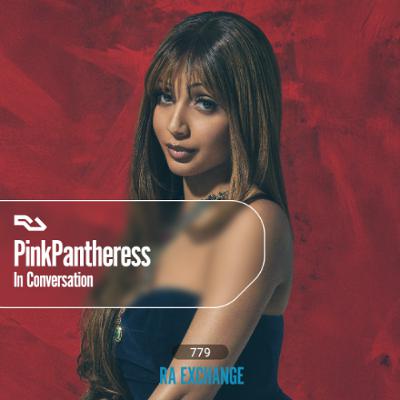
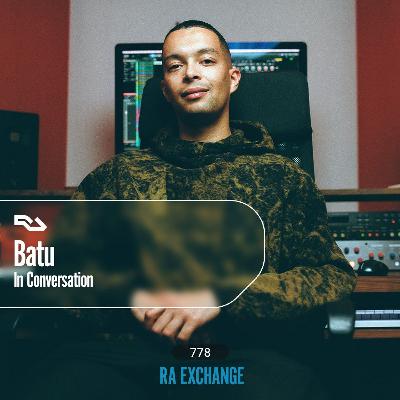









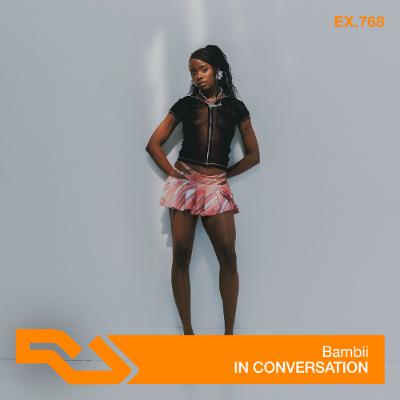



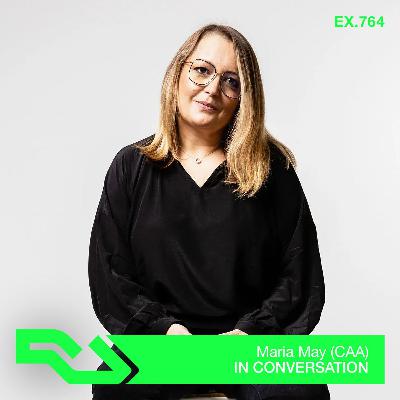


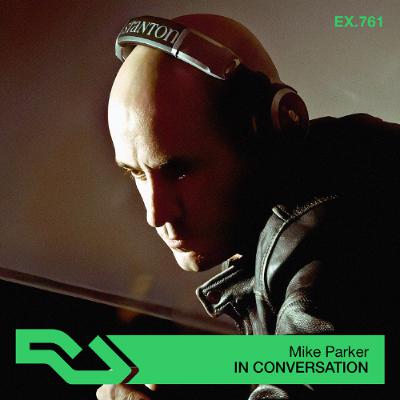



Casually drops in enjoying the sound of the US empire bombing another country. One he doesn't even bother to name. What an arrogant monster.
R.I.P Marcus
Can anyone tell me the name of the track at the end? Shazam keeps coming up with wrong titles. Thanks!
cool episode
Sweet glitchy opening of this podcast.